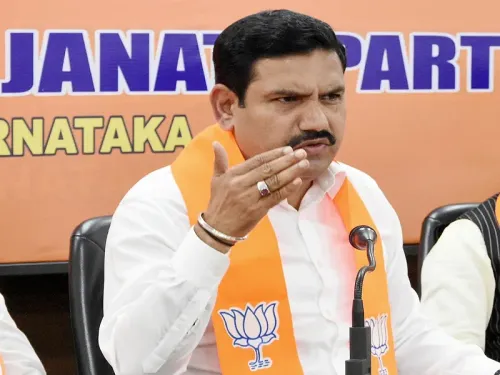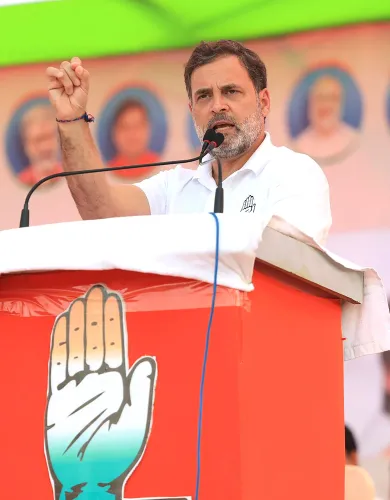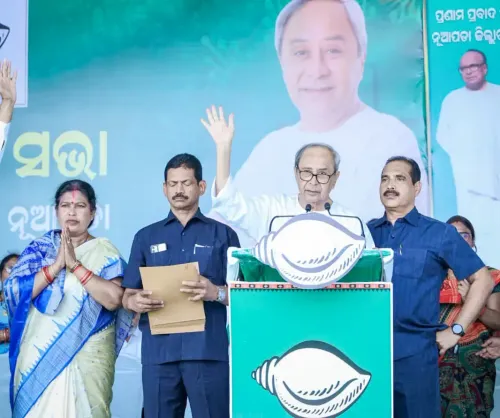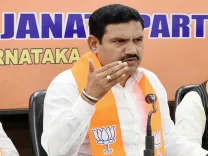What Questions Did Manish Sisodia Raise About the Pahalgam Attack and Ceasefire?
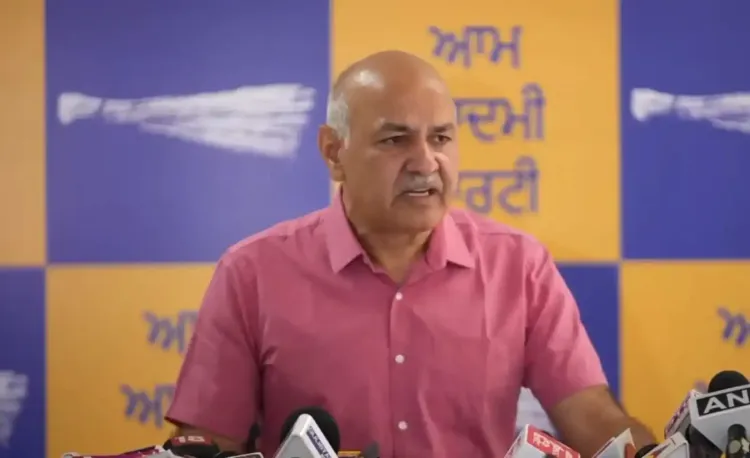
Synopsis
Key Takeaways
- Manish Sisodia raises critical questions about the Pahalgam attack and ceasefire.
- The public demands clarity on government decisions affecting national security.
- Operation Sindoor showcased military action against terrorism.
- Transparency is essential for maintaining public trust in the government.
- Public anger following the Pahalgam attack highlights the need for accountability.
Chandigarh, May 13 (NationPress) Aam Aadmi Party (AAP) Punjab in-charge Manish Sisodia raised significant questions regarding the recent Pahalgam attack and the unexpected ceasefire declared by Prime Minister Narendra Modi.
He sought clarification from Modi concerning the uncertainties stemming from the ceasefire decision.
During a media interaction, Sisodia highlighted that following the Pahalgam terrorist attack on April 22, there was a surge of anger among the populace.
On May 7, the Indian Army successfully executed Operation Sindoor, targeting terrorist hideouts in Pakistan. This action instilled hope for justice and relief among the citizens.
The senior AAP leader stated: "The Armed Forces were actively engaging with Pakistan and were in a robust position in the conflict. Yet, the Indian government abruptly announced a ceasefire, leaving the nation astonished and prompting numerous questions and uncertainties among the public."
"Neither the government nor Prime Minister Modi addressed these concerns in his speech on Monday, despite the public looking for clarity regarding the ceasefire," Sisodia added.
In his address, the Prime Minister remarked, "After India's assertive actions, Pakistan sought avenues to escape and requested the Indian Army to de-escalate tensions. On May 10, after significant defeats, the Pakistani Army reached out to our DGMO and assured that Pakistan would cease its terrorist activities and military operations. Consequently, we halted our counter-offensive."
However, Sisodia questioned: When the nation and the Opposition were united with the government, and the Army was in a favorable position, why did he agree to a ceasefire, especially when acknowledging that Pakistan is a terrorist state? Moreover, if Pakistan was incapable of countering our airstrikes and was pleading for a resolution, why didn’t he demand the extradition of the terrorists responsible for the Pahalgam attack?
Expressing his disbelief, Sisodia remarked, "It is astonishing that Pakistan surrendered, yet Modiji acquiesced. I want to ask, when Pakistani terrorists were mercilessly killing people in Pahalgam and our fellow citizens were begging for mercy, how could you concede to their request after just one appeal?"
He further questioned, "If the Prime Minister consented to the ceasefire, why didn’t he engage Pakistan’s Prime Minister for a written agreement, akin to the 1972 pact?"
Lastly, he raised concerns over how US President Donald Trump announced the ceasefire mere minutes before Indian officials did, claiming he pressured both nations to halt conflict. Why was this critical statement omitted from the Prime Minister’s remarks?
"When the perpetrators of the Pahalgam attack remain uncaught, how and when will justice be delivered to the victimized families?" Sisodia questioned, asserting that citizens deserve transparency.
He concluded that the Prime Minister's silence suggests underlying issues, which cannot be overlooked in such serious matters.


